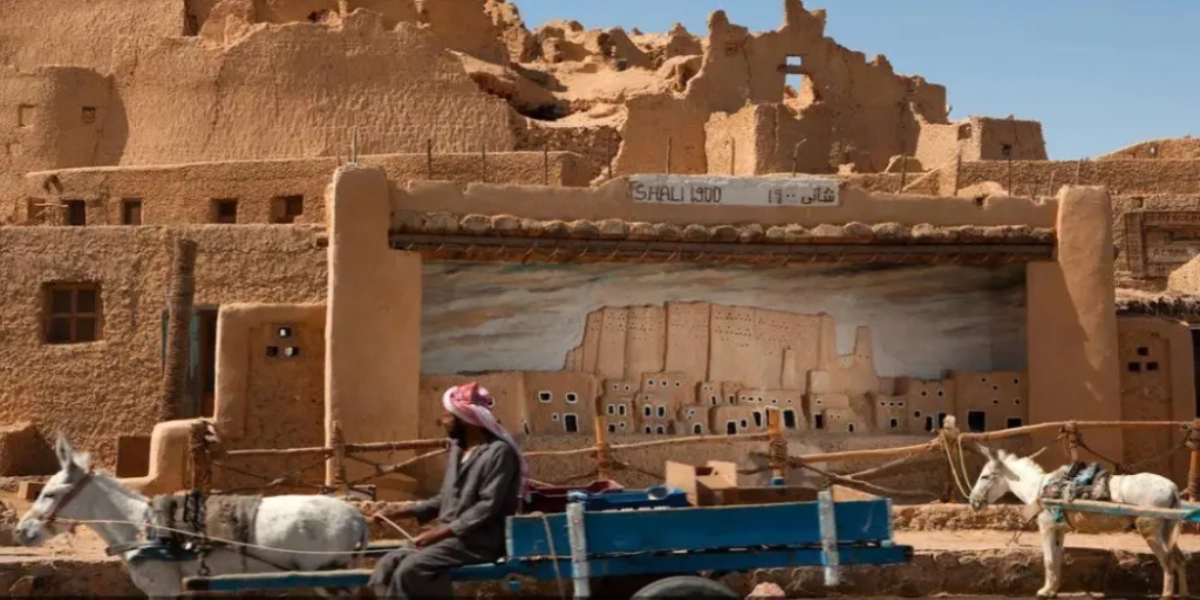Tucked away in Egypt’s far west, surrounded by endless dunes and salt lakes that shine like mirrors, lies Siwa Oasis a world apart.
Here, life moves gently to the rhythm of palm trees swaying in the breeze and the call of distant birds echoing across the desert But to truly understand Siwa, you must taste it.
Its food tells the story of the land simple, pure, and shaped by centuries of isolation and love.
1. A Culinary Heritage Born from the Desert
In Siwa, the kitchen is not just a place to cook it’s where culture, community, and history blend in every bite.
The locals, known for their generosity and hospitality, use what the oasis gives them: fresh dates, olives, wheat, and salt harvested from the nearby lakes.
Meals are slow and shared, often eaten under the shade of palm groves or around an open fire under the stars.
Every dish feels connected to the earth organic, flavorful, and filled with tradition.
2. Signature Dishes You Must Try
El-Fettah el-Siwawi
A comforting local favorite made from layers of toasted bread soaked in broth, topped with rice and tender meat. It’s both hearty and humble a reflection of Siwan warmth.
Tagella Bread
Baked directly in the sand over hot coals, this flatbread is a true Bedouin creation. Watching it being made is an experience in itself a ritual that links modern Siwans to their ancestors.
Siwan Olives and Olive Oil
Siwa’s olive groves are among the oldest in Egypt, producing rich, golden oil that flavors nearly every meal. Taste it fresh with bread, or buy a bottle to take home, it’s liquid sunlight in a jar.
Date Syrup and Palm Sweets
Dates are the heart of Siwan life Locals turn them into thick syrup, delicate pastries, and sweet treats that are served during festivals and family gatherings.
3. Salt, Water, and Life
Salt is more than a spice in Siwa it’s part of its identity< The oasis is surrounded by glittering salt lakes, whose natural minerals preserve food and purify the body.
Many travelers visit Salt Lake Cleopatra or Taziry Lake, where floating in crystal-clear water feels like drifting in another world.
The salt harvested here is also used in cooking, skincare, and even building some lodges are made from salt blocks that glow softly at sunset.
4. Eating Like a Local
In Siwa, food isn’t rushed. Meals are an act of connection between people and nature, between the past and the present.
Join a home-cooked dinner with a Siwan family, and you’ll feel it: the warmth of community, the laughter, the sense that life doesn’t need to be complicated to be full.
Locals often gather for tea ceremonies, using desert herbs like mint, basil, or wild thyme< The tea is brewed slowly over a charcoal fire, poured into small glasses, and served with stories that stretch into the night.
5. Cultural Secrets of the Oasis
Siwa’s isolation has preserved a language, culture, and rhythm of life found nowhere else.
The Siwi people speak a Berber dialect, and their customs blend North African and Egyptian traditions.
Festivals like Siyaha, the famous “Festival of Peace,” bring everyone together a celebration of unity, forgiveness, and the beauty of shared humanity.
Handcrafts are another expression of Siwan identity intricately embroidered garments, palm-leaf baskets, and silver jewelry that tell stories of love and resilience.
6. When to Visit Siwa
The best time to experience Siwa’s flavors and charm is between October and April, when the weather is mild and the dates are ripe.
Many travelers come during the harvest season, when the air smells of olives and sweet fruit a time when the oasis feels more alive than ever.
7. The Spirit of Siwa
To taste Siwa is to understand its soul simple ingredients elevated by care, community, and time.
Every meal, every smile, and every shared moment reminds you that luxury isn’t always about fine dining sometimes, it’s a piece of bread, a spoonful of honey, and a view of the endless desert.
When you leave Siwa, the memory that lingers isn’t just of its landscapes it’s the taste of peace, generosity, and timeless beauty.




